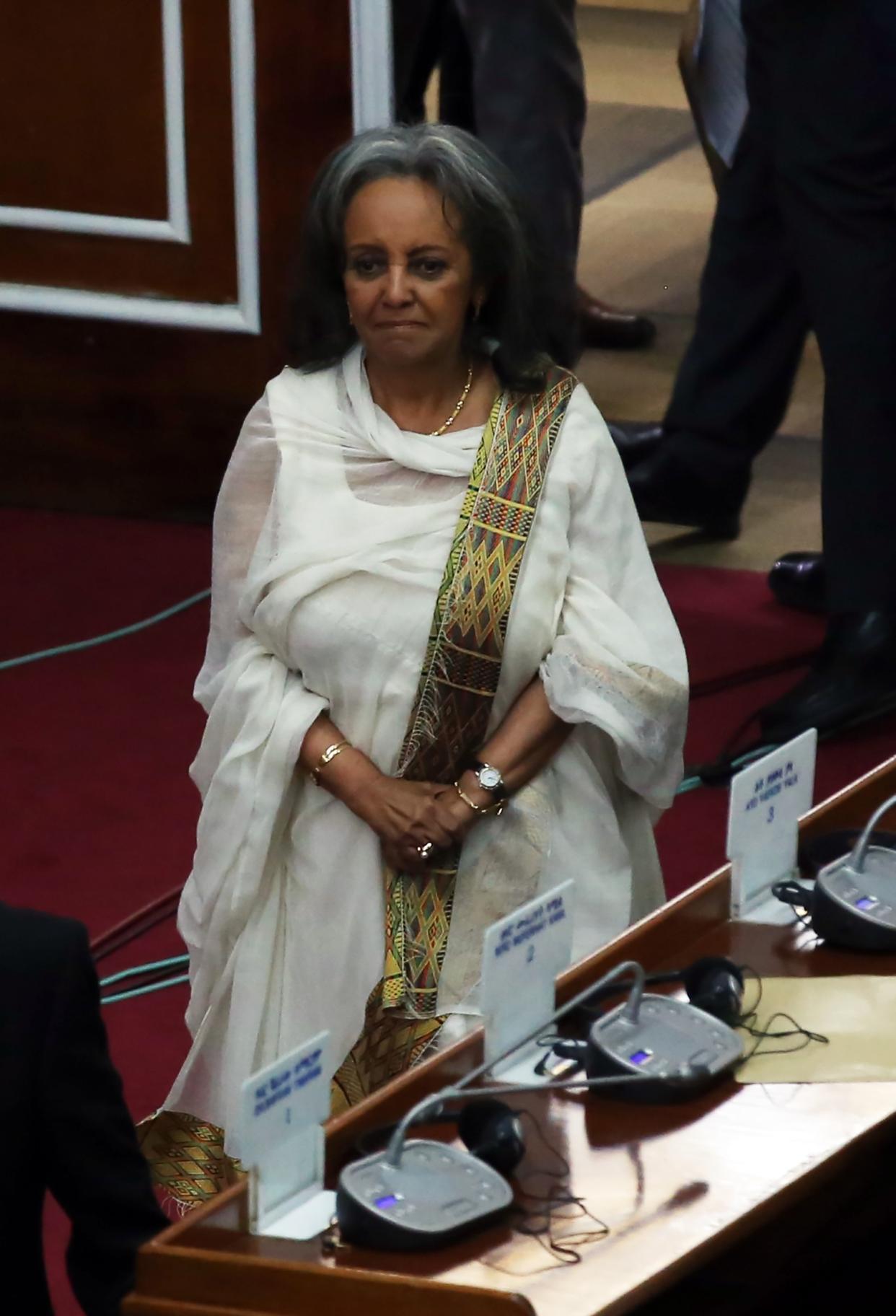Ethiopia selects Sahle-Work Zewde as its first female president

Sahle-Work Zewde made history Thursday by becoming the first female head of state in modern Ethiopia. The experienced diplomat was elected unanimously by Ethiopia’s Federal Parliamentary Assembly and becomes the only African female head of state currently — serving the continent’s second-most populous country, to boot.
In her first speech to Parliament, the new president laid out her plans to unite the country and to continue fighting for women’s rights.
“The absence of peace victimizes firstly women, so during my tenure, I will emphasize women’s roles in ensuring peace and the dividends of peace for women,” Sahle-Work said, Al Jazeera reports.
Reaching one of the highest offices in Ethiopian government isn’t the first glass ceiling that Sahle-Work has shattered. In fact, she has an extensive résumé in international diplomacy.
Sahle-Work became the first woman appointed to be the special representative of the U.N. secretary-general to the African Union. She has previously acted as an ambassador for Ethiopia in several countries. Before ascending to the presidency, she was working as the U.N. director-general in Kenya.
Many Ethiopian officials and citizens, including the prime minister’s chief of staff, have sung her praises, not only for her “competence” and “experience,” but also the inspiration she will bring to young girls across the world.
In a patriarchal society such as ours, the appointment of a female head of state not only sets the standard for the future but also normalises women as decision-makers in public life. #Ethiopia (2) pic.twitter.com/3Z8UNd15E0
— Fitsum Arega (@fitsumaregaa) October 25, 2018
Ethiopia is a federal parliamentary republic, which means that Parliament appoints the prime minister, who holds executive power in the country. Parliament also appoints the role of president for a six-year term for what is considered a largely ceremonial role. But Sahle-Work’s appointment is the latest sign of the country’s overall push toward gender equality.
Ethiopia has made sweeping political and economic reforms since the appointment of Ethiopian Prime Minister Abiy Ahmed earlier this year. Abiy has publicly shown his support for women with not only words but action. The news of Sahle-Work’s presidency comes after Abiy nominated women to 50 percent of the East African country’s Cabinet, and Parliament approved their seats.
“Our women ministers will disprove the old adage that women can’t lead,” said Abiy about his Cabinet, which echoes what Canadian Prime Minister Justin Trudeau has said about his diverse, gender-balanced group of leaders. “This decision is the first in the history of Ethiopia and probably in Africa.”
In an interview with the Washington Post, Sehin Teferra, co-founder of the feminist Setaweet movement, explained the importance of appointing women to leadership roles in the country’s government.
“I think appointing one or two women would not have made the change, but with this critical mass, when you have 10 [ministers] out of 20, then yes, I think it will do a lot in terms of addressing people’s attitudes,” Sehin said. “It also provides inspiration to young girls.”
This is precisely Sahle-Work’s overall goal. In her speech, she emphasized, “Government and opposition parties have to understand we are living in a common house and focus on things that unite us, not what divides us, to create a country and generation that will make all of us proud.”

